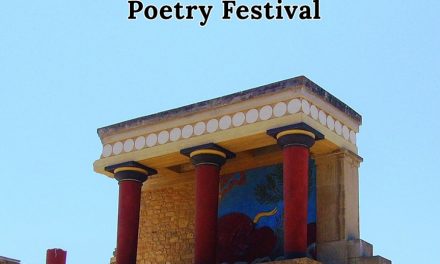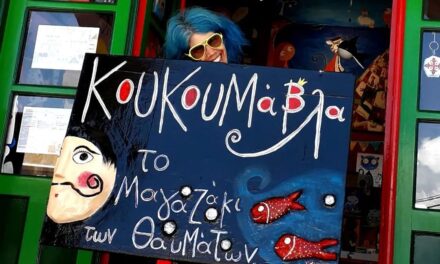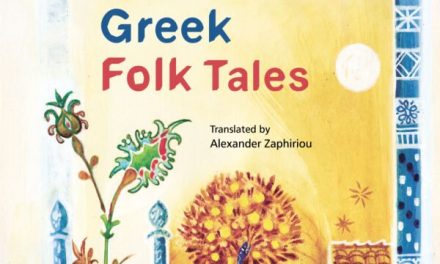The poetry collection Birds in the Night, the latest writing venture of distinguished poet Stamatis Polenakis, has just been published in English, masterfully translated by Richard Pierce. The book has also been translated into Spanish by renowned translator José Antonio Moreno Jurado, published by Padilla Libros Editorial y Libreria.
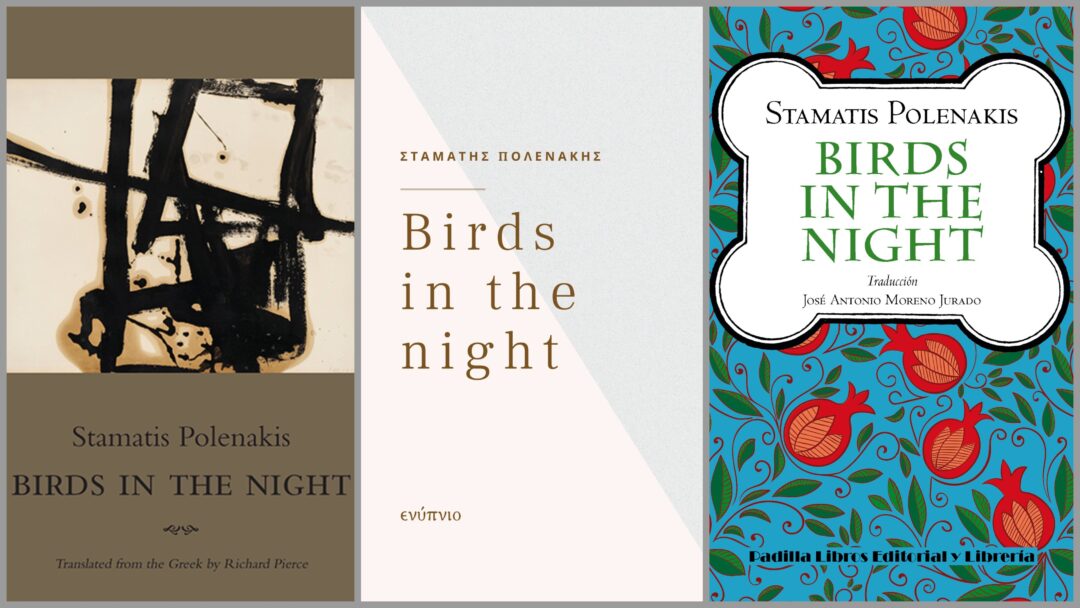
As Lee Slonimsky writes in the Preface of the English edition, “Mystery, striking imagery, and a fearsome atmosphere are recurring motifs in all the poems. Even the briefest glance at the first poems affects the reader forcefully along these lines: ‘the darkness emerging from behind the hills’, ‘purple hair streaming’ (a recurring image) … ‘the air raid sirens began to sound again and we crawl like blind animals into the stifling shelters”. There is no specificity as to time and place, but a sense of menace and inevitable doom permeates the language, unnerving the reader even as she or he is riveted to numerous startling images”.
“They gave us one hour to bury the dead; the pure white bones crack in the frigid moonlight. I invoked the dark oracle and the only reply was the echo of my own voice and the sound of the viola you are playing in the depths of the earth. Your hand shakes the branches and touches the sick leaves and the fruit of the trees continuously falls onto the dead earth like the thick snow amidst us. Further off on the horizon the rose beds burn and the blind birds that foretell the future return, bewitched by the demonic dance of the trees and the nocturnal storm. Beneath the riddle of the large starry night, beyond the mysterious and invisible conjunction of the planets, I saw your purple hair streaming. Oh, you and I all alone, lost forever in the great mystery of the world and of time that crumbled, lost forever until God returns and utters the Word we are expecting”.
[Birds in the Night (Enypnio, 2022), translated by Richard Pierce]
Stamatis Polenakis was born in Athens, Greece in 1970. He was trained as a cinema director in Athens and also studied Spanish culture and language at the Complutense University of Madrid. He has lived and worked in Spain and Ireland (Dublin). He is the author of seven poetry collections, namely The Hand of Time (Omvros, 2002), The Blue Horses of Franz Marc (Odos Panos, 2006), Notre Dame (Odos Panos, 2008), The Odessa Steps (Mikri Arktos, 2012), The glorious stone (Mikri Arktos, 2014), The roses of Mercedes (Mikri Arktos, 2016), Birds in the night (Enypnio, 2022), a novel titled The struggle with the angel (Enypnio, 2020), while he has also written theatrical works, four of which have been staged. In 2017 his collection The Roses of Mercedes was awarded the Greek National Prize for Poetry. His poetry has been translated into English, French, Spanish, Italian, German and Slovenian.
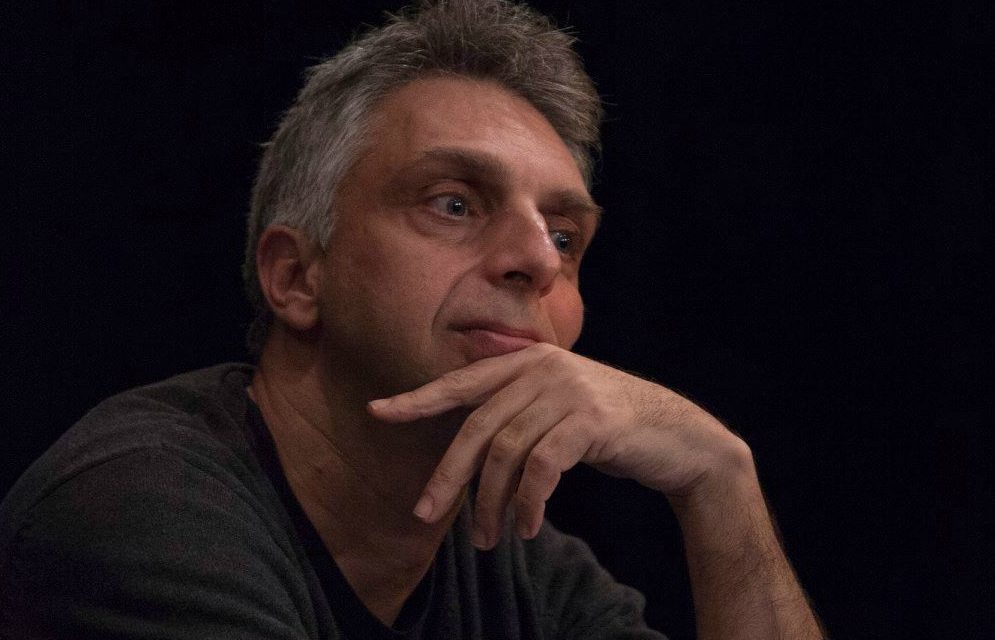
Polenakis belongs to the so-called “Generation of the 2000s, which, which according to C.P. Cavafy Professor Emeritus of Classical Studies and Comparative Literature Professor Vassilis Lambropoulos “has been composing a poetry of the melancholic history of intermittent insurgency, a revolt which functions irregularly as it starts, stops, and starts again. Thus, it is engaged in a major project of cultural (literary, artistic, and critical) critique of teleological (linear) history and organic (circular) poetry”.
The Great Enigma
Goodbye forever to this brief
age of freedom.
Farewell unforgettable days and glorious nights
and leaves scattered by the wind.
We were young, we hoped for nothing
and we waited for the morrow with the blind obstinacy
of the shipwrecked person who casts stones in the water.
[Odessa Steps (Mikri Arktos 2012), translated by Richard Pierce]
Αmong recurrent themes in his poetry, in the words of the poet himself in an interview to Reading Greece, are “the idea of revolution, both continuous and glorious in its failure, the effort of man to become what he is, to break his ties with the historic time and enter the messianic one. Man’s unremitting effort to ennoble the world. Love, memory, search for happiness, disaster and loss. Art and poetry as a distant memory of paradise lost. In the words of poet and editor Dinos Siotis, “Stamatis Polenakis belongs to the tradition of poets whose every poem is a revelation, an apologia of poetry made anew, a fresh acknowledgement of authentic visions and melancholic convergences, instant flashes which last for ever”.
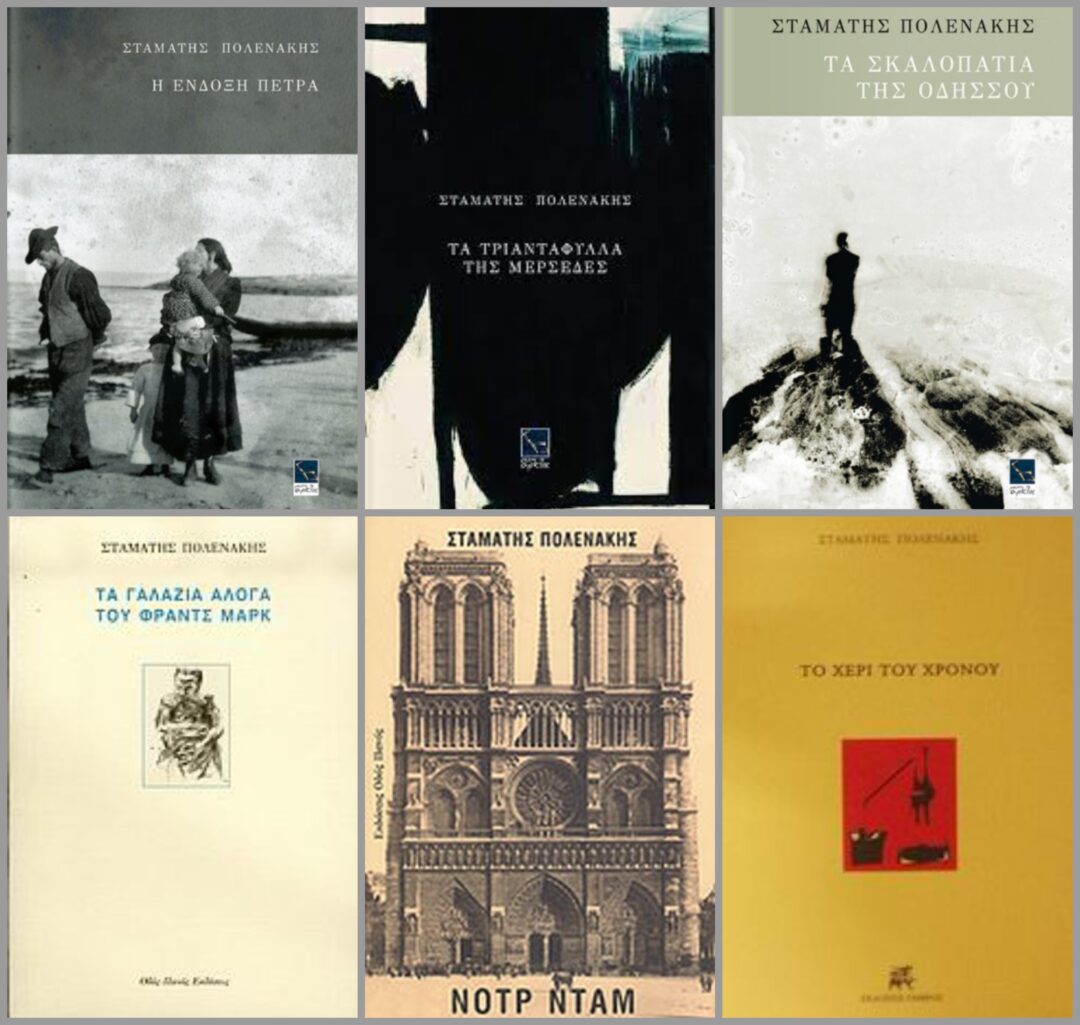
As translator Virginia Lopez Recio notes in her Introduction to the poetry anthology Luz oscura, which constitutes the first complete translation of Polenakis’ work into Spanish, “Polenakis’ poetry, besides being lyrical, is narrative, dialogic, political, iconic, historical and supra-historical. His historical background is constituted by bloody events such as the French Revolution, the Russian Revolution, the Spanish Civil War, the Greek Civil War, the two World Wars…”. A pessimistic vision of the world permeates Polenakis’ poetry, depicting a world of injustice, human misery, destruction, where human destiny is inescapable.
Death of Odysseus
When the earth shook and the heavens parted and the sad shades started climbing back up toward the light, then we saw from afar the unfamiliar waves of our new homeland calling us. But Odysseus wasn’t with us. Odysseus wasn’t among those who came back. That’s why Penelope weaves by night a shroud of dark snow. That’s why the dead gaze at us with the eyes plucked from their sockets.
[The glorious stone (Mikri Arktos 2014), translated by Nick Moschovakis]
The Greek mythology, transfused with modernity, is often present in Polenakis’ poetry. Ιn the words of Slonimsky, “Polenakis’s immortal poetry holds the language and imagery of modern myth, created before and for our contemporary eyes as if coming in full dark circle from the ancient Greek origins of so much of Western myth”, rendering his poetry a must-read in the midst of the current “tumultuous and agonizing times”. Whether lyrical, historical or political, Polenakis’s poetry is above all a humanitarian poetry. An authentic poetry, a poetry of the most profound empathy, where the history of the past bonds with the reality of the present, placing humans in the center of every fight and every conquest.
A.R.
Also read: Reading Greece: Stamatis Polenakis on Art and Poetry as a Distant Memory of Paradise Lost
TAGS: LITERATURE & BOOKS | READING GREECE

